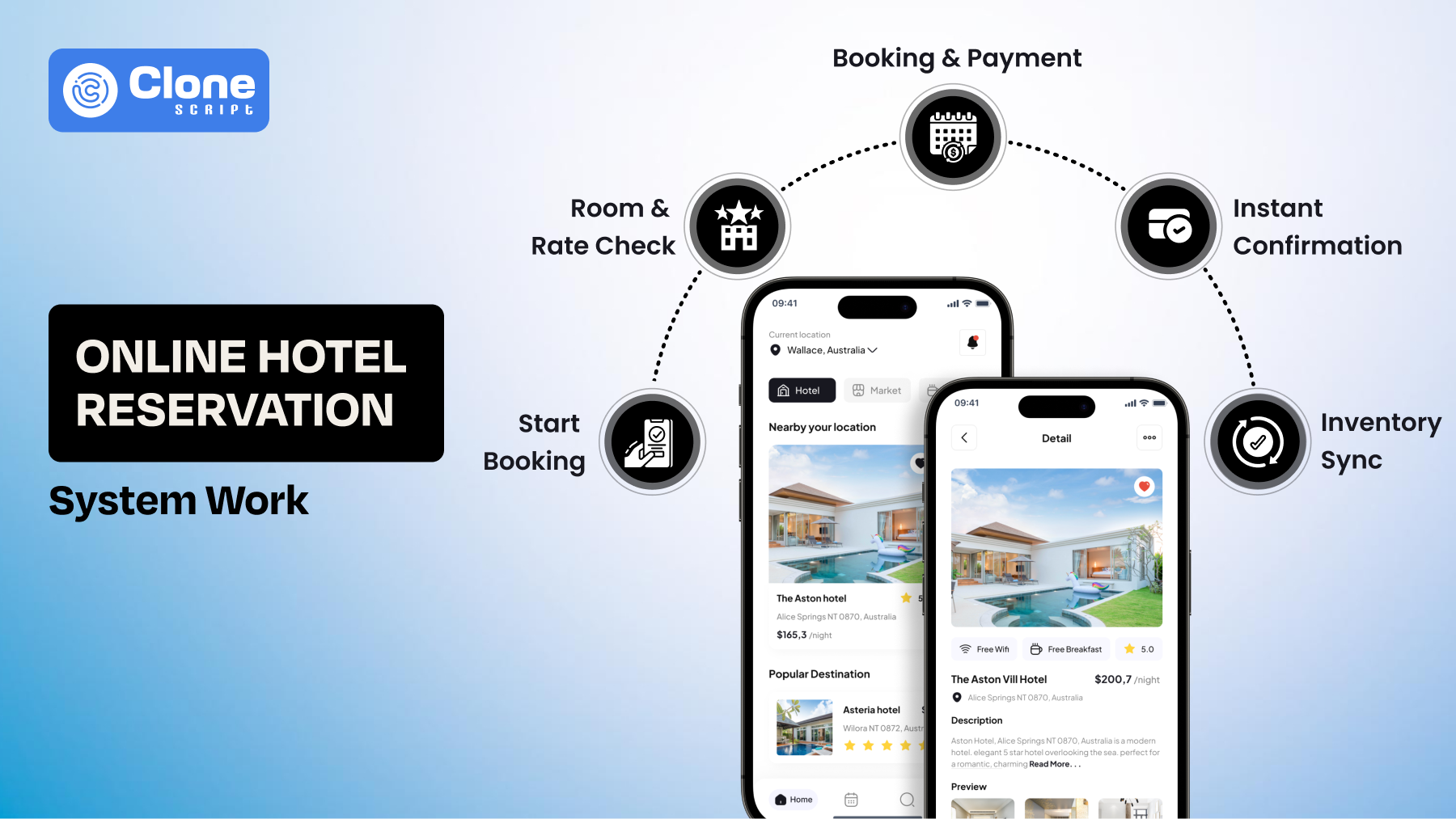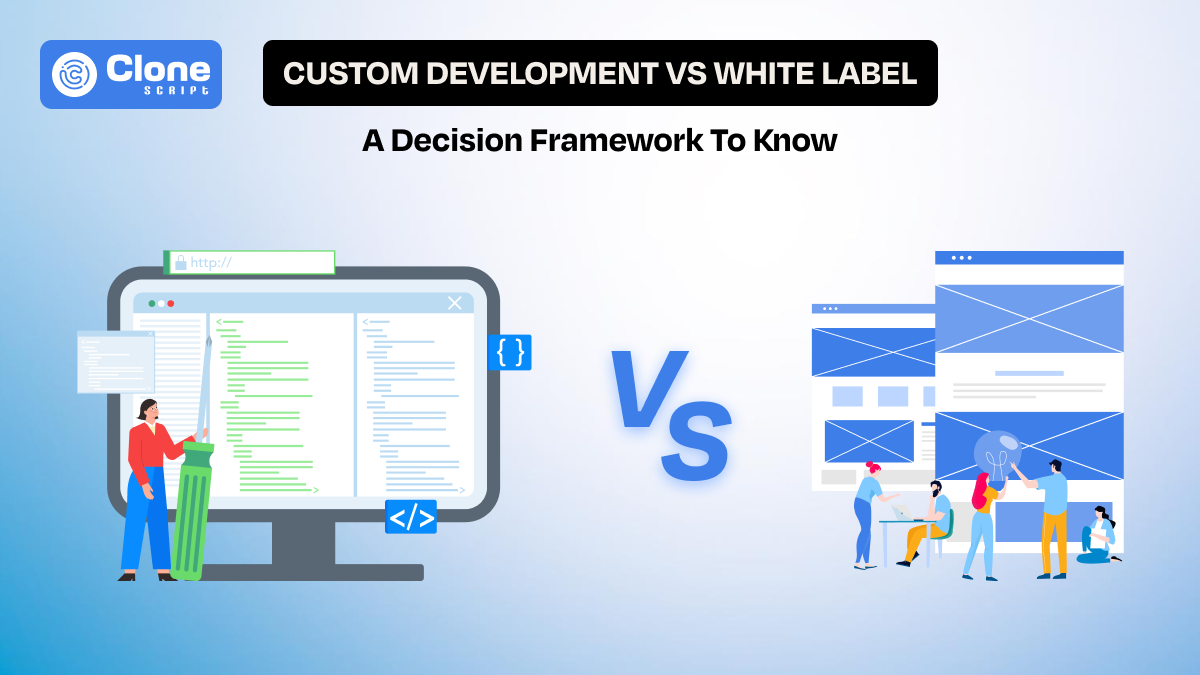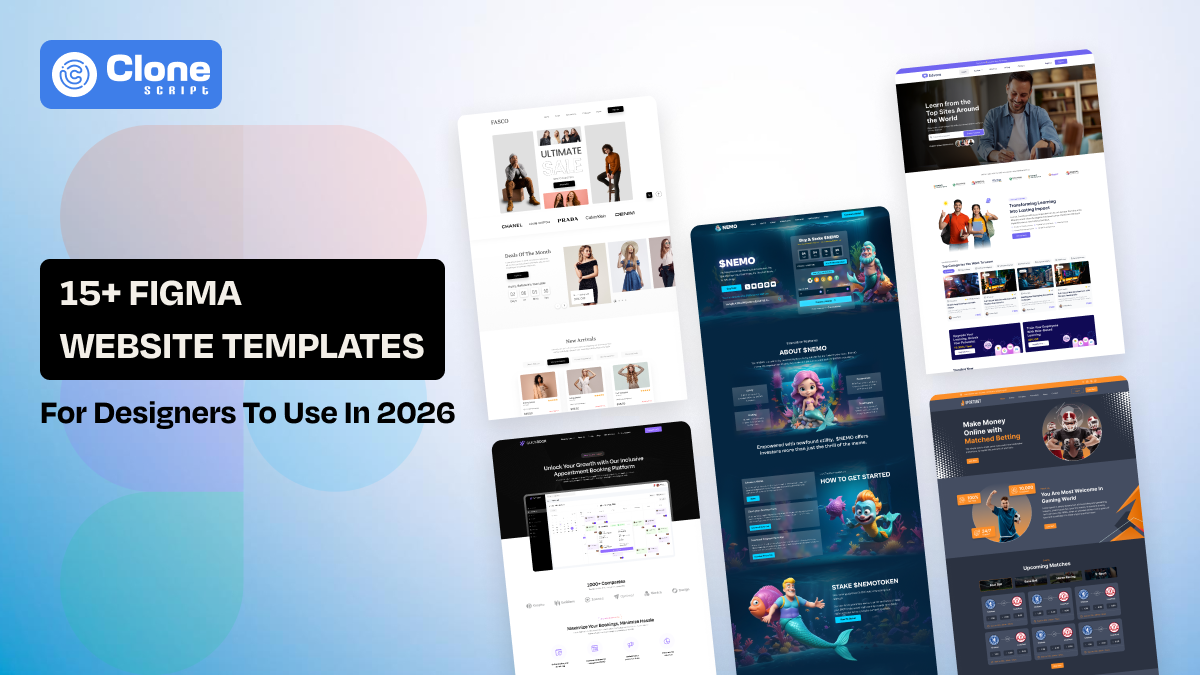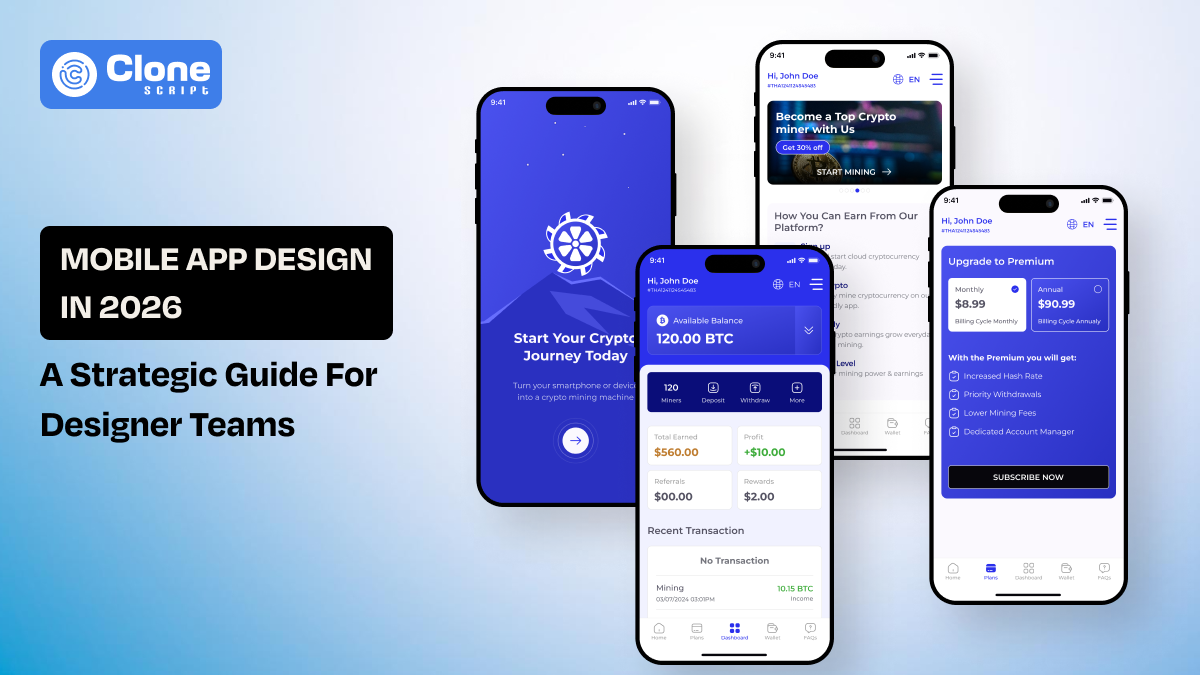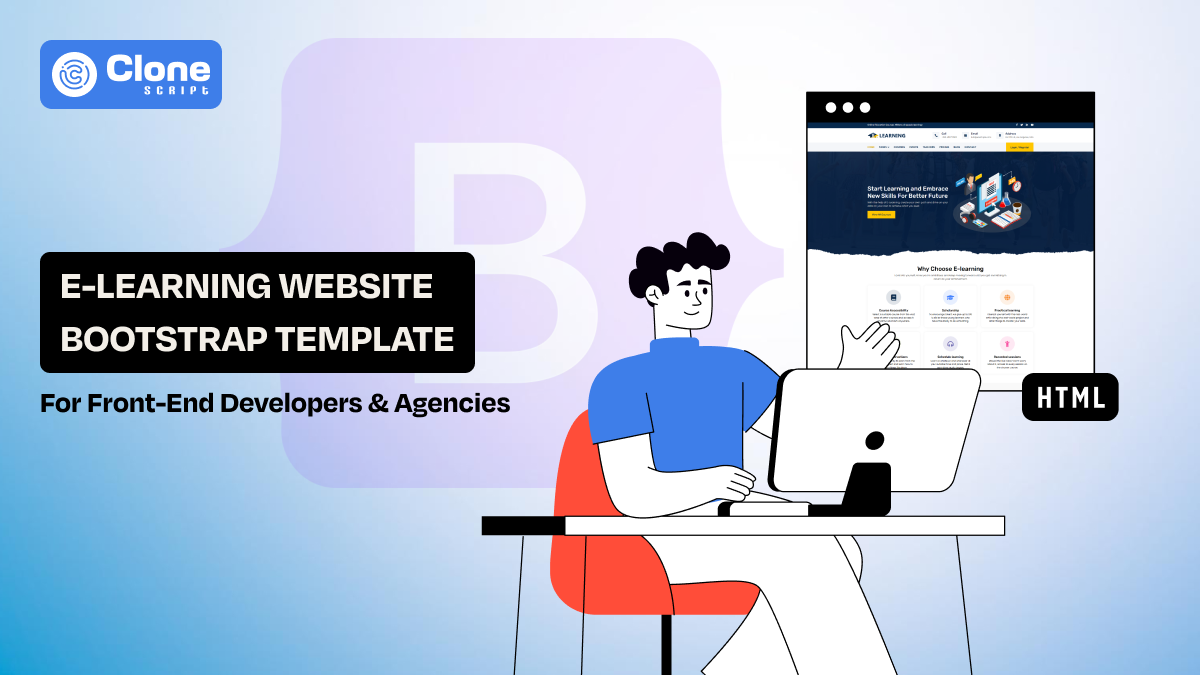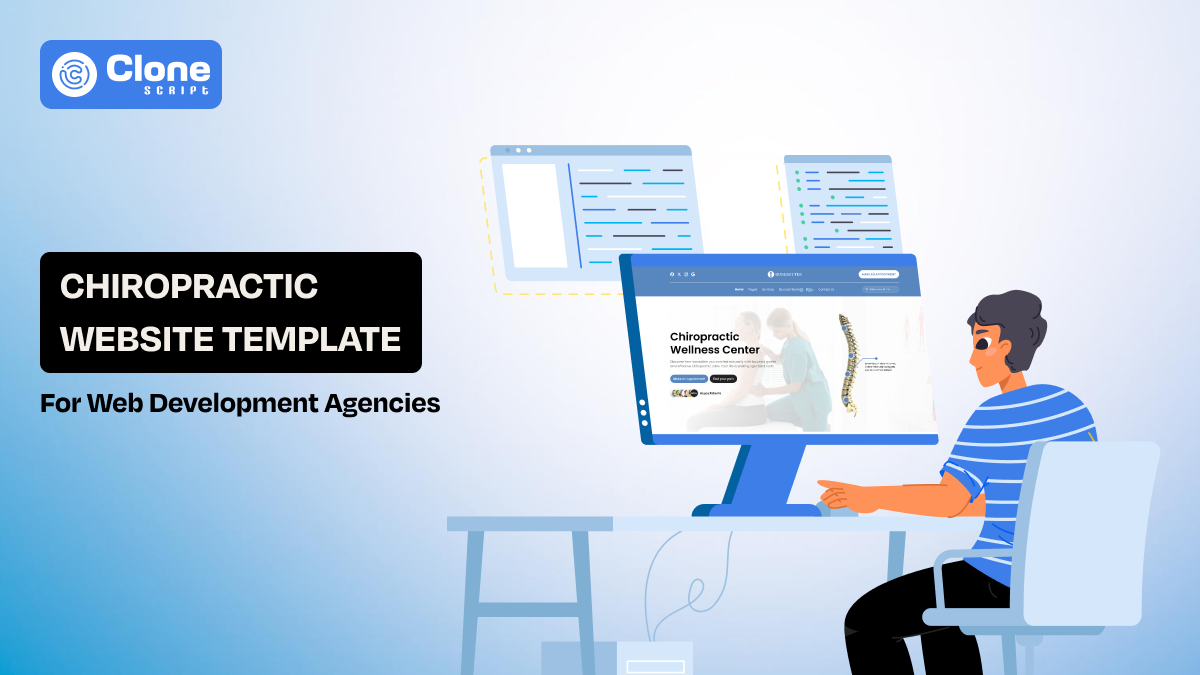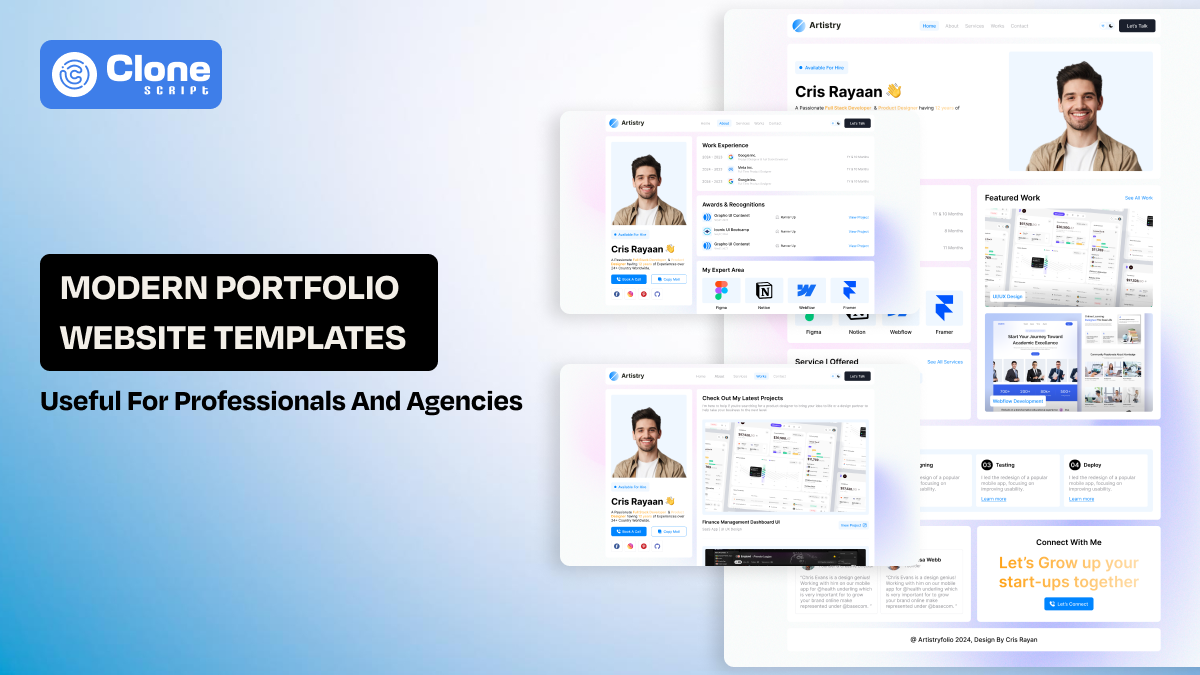How Does an Online Hotel Reservation System Work in Real Time?
Real-time hotel reservation systems have become mandatory in an industry where every second can impact guest satisfaction, revenue, and operational efficiency. Whether you manage a boutique hotel in the UK, a heritage property in India, or a luxury resort in Canada, having a robust hotel booking system is no longer a luxury. It’s a necessity.
This article walks you through exactly how online hotel reservation systems features work in real-time, the components involved, why they matter, and how you can implement a solution that gives your guests the experience they expect. It helps you run a smarter business.
What Is a Real-Time Hotel Booking Software System?
A real-time hotel booking system is a digital platform, usually in the form of a website, mobile app, or software dashboard. It allows guests to check availability, book rooms, and receive confirmation instantly.
But it goes deeper than that.
This system connects the frontend (what your guests see) with the backend (your hotel’s database and room inventory). Every booking, cancellation, or change triggers an instant update across all connected platforms, like as your website, OTAs (Booking.com, Expedia), and even internal systems. That means fewer errors, no double bookings, and a smoother experience for everyone.
Why Real-Time Matters: Guest Expectations Have Changed
Today’s traveler books on the go. They compare prices online in real-time, expect instant confirmation, and want their room guaranteed, right now.
A delay of just a few seconds or minutes can lead to:
-
Booking loss
The guest chooses another property with instant confirmation. If your hotel booking app is not optimized for a better user experience, don’t assume to will get hundreds of bookings even if your facilities are top quality.
-
Reputation damage
In the hospitality industry, word-of-mouth marketing works better than digital paid advertising on Google and Meta platforms (Facebook and Instagram).
Why?
If a traveler experiences an unforgettable professional service, they share positive feedback with their friends, relatives, and everyone. All these can happen with a software and technology solution.
On the reverse side, a slow or outdated booking system gives the impression that your hotel is disorganized. It’s a cautious sign for your business.
-
Operational inefficiencies
Traditionally, booking hotels takes time, especially in a season when all rooms have to be full, and it’s tough to manage with a few staff.
Manual confirmations of bookings and frequent time-consuming inventory checks keep staff busy with unnecessary tasks. So, even if your employees are well trained and educated in the method to use for managing your hotel bookings will demotivate them.
This resulting in an error in work management, like attending a guests for a function celebration, poor execution of the plan, low-quality productivity, and all of that.
It shows travelers that your business is not organized properly, and they don’t prefer to come again.
So if your current system still involves checking emails or calling to confirm availability, it’s not just inconvenient. It’s costing you to spend more money on unnecessary things.
The Core Components of a Real-Time Hotel Reservation System
Let’s look under the hood. A fully functioning hotel booking app for business typically includes the following:
1. Booking Engine
A booking engine is a key aspect to make your hotel booking app more engaging, useful, and profit-driven.
It contains two sides: 1. Front-end app and 2. Backend app. Both works interoperably and do not supplement each other.
The front-facing interface design that your guests use to check availability, view pricing, select rooms, and book directly. It should be made with the proper research and user preferences. With a professional app UI and UX design, it could be done easily.
Going towards making the front-end functionality real, the work starts with backend development. The app integrates with your backend to fetch real-time data and update it as soon as a booking is made.
2. Channel Manager
If you allow users to book your hotel on online travel agencies (OTAs) like Booking.com, Airbnb, Expedia, and OYO, apart from your website and app, you must have a channel manager tool.
It synchronizes your room inventory across all the platforms. If someone books a room via your website, the system immediately updates availability across all other channels and vice versa.
Why is this useful?
It’s simple to avoid double bookings, miscommunications at the time of check-in and check-out, and preferred amenities and proper discounts management.
3. Hotel Management Software (HMS)
With hundreds of rooms on multiple floors, it’s hard to manage and handle day-to-day operations such as guest check-in/check-out, housekeeping schedules, staff assignments, and reporting.
With a complete hotel management software (HMS), the backend communicates in quickly with the booking engine and your admin dashboard. So, your service commitment towards guests remain polished, dedicated, and valuable.
It increases your chances of retaining them to prefer your platform for hotel booking and finding their expected goals to achieve.
4. Secure Payment Gateway
For online booking reservations, guests expect fast and safe transactions. As a business, you have to integrate a reliable, secure, and up-to-date payment gateway into your software application.
It allows guests to check out safely and make the payments in their preferred multiple currencies, whether it’s a local or a global one. Also, the compliance with security standards like PCI-DSS and PCI-SSC keeps the safety of payments.
In addition, cryptocurrency payments have become popular with Bitcoin, Ethereum, and other viral meme coins in the market. So, your booking platform isn’t limited to only FIAT currencies but is going with a future-thinking option as crypto payments.
5. Admin Dashboard
With a hotel booking reservation software application, you can skip the manual tasks that become a headache. From an admin dashboard, manage the entire platform easily and with better productivity.
-
Provides guidelines to hotel staff and managers with full control
-
Monitor occupancy rates during the season and off-season
-
View guest data (check-in/out time, extra facilities, meal services, etc)
-
Running promotional campaigns like digital marketing, social media ads, and ROI generated
-
Get the analytic reports for business performance to decide on marketing strategies.
With the dashboard, you have a complete picture of what's going on and where the improvement is needed. So, from there, you can save the burn and invest in profitable activities.
6. AI Chatbot Integration
AI in customer experience is not an exception in a hotel booking platform. Answering the guest's question quickly and professionally related to room availability, bookings, amenities, facilities, and extra charges helps to decide.
The best part of AI chatbot integration is to keep your booking platform open 24*7. For example, a couple wants to book a luxury suite room at 2 A.M., or a solo traveler wants to know the rates, the AI chatbot needs to answer quickly.
Want to know how the booking platform works in real-time? Let’s explore.
How Real-Time Booking Works: Step-by-Step Workflow
Ever wondered what really happens the moment a guest clicks “Book Now”? Here’s a clear walkthrough of how real-time hotel booking systems work behind the scenes and are built to show you just how effortless the process can be with the right tools.
Step 1: Guest Starts the Booking Journey
A potential guest lands on your hotel booking website or app, enters travel dates, chooses room preferences, adds any extras (like breakfast or airport pickup), and clicks “Search.” This is where the real-time system springs into action.
Step 2: Real-Time Room & Rate Check
Your system instantly communicates with the backend, pulling live room availability and pricing from your hotel’s database and connected OTA platforms. This ensures the guest sees only accurate, up-to-the-minute options.
Step 3: Booking & Payment
Once the guest selects a room, they proceed to a secure payment gateway. They opt for a preferred online payment method, add debit/credit card details, and initiate the transaction. The system processes their transaction in a timely manner and locks the booking within seconds.
Step 4: Instant Confirmation
Once the payment is successful, a confirmation message is instantly sent via email or SMS, complete with a booking reference and details. The guest feels reassured, knowing their reservation is confirmed. There is no waiting, no uncertainty.
Step 5: Live Inventory Sync
Your system automatically updates the room inventory across all platforms (your site, OTAs, internal dashboards). This prevents double bookings and saves your team from manual updates. To focus on important tasks, such as business expansion, will be taken on time.
Step 6: Back-Office Integration
The new booking appears in your hotel’s admin panel and triggers updates in housekeeping, check-in schedules, reports, and guest CRM. This gives your staff real-time visibility and reduces problems and miscommunications.
Tech Behind the Scenes: What Powers a Real-Time Hotel Booking App and Website?
Running a successful hotel isn’t just about comfy rooms and warm service anymore. It's about smart technology working quietly in the background. Online hotel booking systems are powered by some of the most advanced tools in hospitality software, ensuring everything runs smoothly from search to check-in.
1. Cloud-Based Hosting
First, cloud-based hosting (like AWS or Google Cloud) ensures that your booking engine stays lightning-fast and fully accessible 24/7, even during high-traffic seasons or global surges. It's scalable, reliable, and always online. It is exactly what your guests expect.
2. API & OTA Integration
Next, API and OTA integration are what make your system “smart.” APIs allow your booking engine to connect seamlessly with third-party platforms like Booking.com, Expedia, or your channel manager. This double-checks the perfect syncing of rates, room availability, and booking statuses across all channels.
3. AI & Machine Learning
Then there’s the game-changer: AI and machine learning. These technologies help your system learn from guest behaviors to offer dynamic pricing, personalized packages, and auto-optimize room inventory. This can be done without manual input.
4. Data Security & Compliance
Finally, no booking system is complete without rock-solid security. Features like SSL encryption, tokenized payments, and GDPR compliance keep guest data protected and your brand trusted.
In short, online hotel booking systems are powered by next-gen tech. It increases smooth automation, increases bookings, and total guest satisfaction.
Benefits of Real-Time Booking Systems for Hotel Entrepreneurs
Hotel booking app and website aren’t just about speed. They’re smart business tools that directly impact your bottom line, efficiency, and guest satisfaction. Here’s how hotel entrepreneurs can leverage this tech to grow and scale:
1. Maximize Revenue — Stay Profitable, Stay Independent
With a hotel booking software for business, you can offer direct booking discounts right on your website or app. This helps reduce your dependency on OTAs (and their high commissions) while keeping more profit in your pocket. Plus, dynamic pricing tools powered by AI help you adjust rates dynamically based on occupancy trends and demand. It helps you earn more during peak periods.
2. Avoid Costly Overbookings — Sync Everything, Everywhere
Nothing hurts your brand more than a double booking. A complete booking systems ensure that room availability is updated instantly across all platforms, your hotel website, mobile app, and third-party OTAs. This means no more manual errors or lost bookings.
3. Faster Turnover — Automate to Operate Smarter
By automating the reservation process, your team spends less time managing bookings manually and more time focusing on guest experience. The result? Higher efficiency, faster check-ins, and better use of staff time.
4. Data-Driven Decisions — Smarter Insights, Smarter Growth
Modern hotel booking software provides real-time analytics on occupancy, revenue, booking sources, and guest behavior. These insights help you fine-tune your marketing, pricing, and operational strategies to stay ahead of the competition.
5. Global Guest Reach — Sell Worldwide, 24/7
Want to attract international travelers? A hotel booking website and app can be multi-language, multilingual and mobile-friendly. This means guests from anywhere in the world can book with you, anytime, on any device.
In short, a secure hotel booking reservation system isn’t just a tech upgrade. It’s a strategic asset that drives revenue, reduces manual effort, and opens your hotel to a global market.
Real-Life Application: From Manual Stress to Digital Growth
Imagine a mid-size hotel in Goa, India, previously handling bookings manually or through basic forms. Guests would wait hours for confirmation. The front desk often double-booked rooms during peak season. Reviews plummeted.
After implementing a quick hotel booking software app:
-
Confirmations were instant
-
Overbooking stopped completely
-
Occupancy rates rose by 30% in 6 months
-
Staff spent 60% less time managing reservations
This isn’t fantasy. It’s the kind of transformation smart hotel entrepreneurs are achieving globally.
Ready-to-Use Solution: Hotel Booking Software by All Clone Script
You don’t need to build everything from scratch.
All Clone Script offers a feature-rich, scalable hotel booking software solution designed specifically for hotel owners, from boutique resorts to enterprise chains.
Key Features
-
Real-time room inventory sync
-
Powerful booking engine with mobile compatibility
-
Integrated payment gateways (Stripe, Razorpay, PayPal, etc.)
-
OTA and CRM integrations
-
Customizable for branding and localization
-
Analytics, reporting, and role-based access
Built for Global Markets
Whether you serve guests in the US, UK, Canada, Europe, or India, the platform is designed for multilingual and multi-currency support. It helps you reach new markets with confidence.
Explore the full solution at All Clone Script Hotel Booking Platform Software.
Final Thoughts: The Future Is Real-Time — Are You Ready?
The hospitality industry is evolving fast. Guest expectations have shifted permanently toward speed, transparency, and instant control. A real-time hotel booking system is no longer optional, it’s foundational.
If you want to:
-
Boost revenue
-
Improve guest satisfaction
-
Simplify operations
-
Scale across new regions
Now is the time to act.
Ready to take your hotel online, the right way?
Contact All Clone Script. Get real-time hotel reservation software today and bring modern booking convenience to your property.
FAQs
-
Can booking software work with Booking.com and Airbnb?
Yes. All Clone Script’s hotel booking software includes powerful channel management features that seamlessly sync your inventory, rates, and reservations with major OTAs like Booking.com, Airbnb, Expedia, and more, all in a single platform.
-
Does the hotel booking system work on mobile apps?
The system fully supports iOS and Android hotel booking apps. This makes it easy for guests to book on the go, and perfect for businesses targeting mobile-first travelers.
-
Is hotel booking software scalable for multiple properties?
Yes. Whether you run a single boutique hotel or manage multiple properties or hotel chains, the platform is scalable and built to grow with your business. All can be done from one dashboard.
-
How does the booking system sync with OTAs like Expedia or Agoda?
Through API-based integration, the system automatically pushes and pulls data from OTAs, keeping your listings, availability, and bookings synced in real time. No manual updates needed.
-
Will it help reduce OTA commission fees?
By enabling direct bookings through your website or app, you can offer better rates and incentives to guests. It reduces your reliance on third-party OTAs and their high commission fees.
-
What are the benefits of dynamic pricing?
Dynamic pricing tools adjust your room rates in real time based on demand, local events, competition, and occupancy. It helps you maximize revenue automatically, even while you sleep.
-
Can I use this system even if I’m not tech-savvy?
Yes. The software is designed for hotel owners and staff, not developers. Its easy-to-use dashboard makes managing rooms, pricing, reports, and guest communication intuitive for anyone.
-
Does the software support global travelers?
Yes! It includes multi-language and multi-currency support, which helps your hotel attract and convert guests from anywhere in the world with localized experiences.
 BTC - Bitcoin
BTC - Bitcoin
 USDTERC20 - USDT ERC20
USDTERC20 - USDT ERC20
 ETH - Ethereum
ETH - Ethereum
 BNB - Binance
BNB - Binance
 BCH - Bitcoin Cash
BCH - Bitcoin Cash
 DOGE - Dogecoin
DOGE - Dogecoin
 TRX - TRON
TRX - TRON
 USDTTRC20 - USD TRC20
USDTTRC20 - USD TRC20
 LTC - LiteCoin
LTC - LiteCoin

